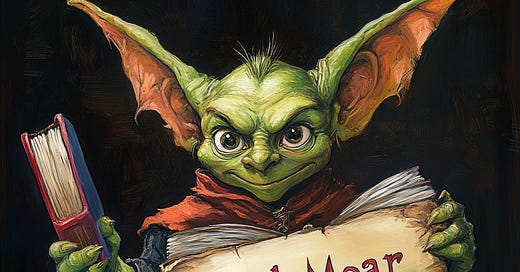by Cedar Sanderson
It’s rare you can give advice that can be wrapped around everyone like a nice warm blanket of reassurance, but in this case, I’m confident in it. I hear all the time when I talk about books to people that they don’t like to read, or they aren’t good at it, or they just don’t have time.
I’m here to tell you, you don’t get good at something by avoiding doing it. You can be a better reader, and there are many ways to do that but it all boils down to one thing: to be a better reader, you have to read a lot. Now, there’s a thing on the internet (and it’s wrong, like so many other things) that audiobooks don’t count as reading. Bushwa1. Reading out loud and listening are skills, too, and you are still taking in the story, it doesn’t have to be text on paper. I am the daughter of a profoundly dyslexic but highly literate man. I don’t hold with artificial limitations keeping people from reading early and often.
In fact, the best way to teach reading to children, and instill a love of books in them? Read to them. Start while they are still safely in utero and can’t run off giggling from you to play a round of hide-and-seek. You don’t need to read baby books to them, read whatever you are reading. Don’t feel comfortable reading out loud? This is a fine time to practice, Junior loves hearing you and isn’t judging your pronunciation or diction. Read to children daily. Read everything and anything to them. As they get a little older, read books that they can engage with on the level where they are - which may not be the same as all the other 2-year-olds you know. You are not only affecting their literacy for life, and building a legacy where they read to their children, you are spending precious time with them building unbreakable bonds.
If you didn’t have a solid foundation in reading? No better time to begin than right now. Go back and read the classics of whatever genre you enjoy. Like Scifi? Have you read EE “Doc” Smith, or Heinlein, or Frederic Brown, or any of a long list of authors D. Jason Fleming has been highlighting here on the Substack? If not, give them a whirl. You may find that you struggle with the 19th century language and structure of Jules Verne. Persist. By reading, you are building patterns in your brain that will hold you in good stead throughout all the parts of your life, from the ‘emotional intelligence’ you’ll learn in fiction that you can help yourself to build solid relationships with partners, children, and even co-workers, to the logic and innate understanding of human nature you can use to succeed at your job. Reading offers far more than a rollicking good fiction story.
Push your comfort zones. Read older books that are related to the entertainment you like now. I guarantee you that if you like a video game, a movie, a teevee show, there are books which came before it, even if only orthogonally, which you would also enjoy. Not liking books is, I find when I ask probing questions, far more often a result of being forced to ingest the indigestible in school, be that early or college, or all along the way. No wonder so many people loathe reading. Do some exposure therapy. Find light, fluffy, happy books. Try short stories (we have 50-some anthologies!) to start out.
Short stories are also the answer to people who tell me they don’t have time to read. They are good for re-training your attention span to hold a focus longer, and longer. Set a timer. Read for 15 minutes or ten, if that’s all you can do, then after a week make the timer longer, and eventually you’ll have exercised your brain enough to be able to do a marathon of reading over a whole weekend2 and your ability to focus on long-form work will be back. If you truly don’t have time for a paper book and a comfy chair, reclaim your commute with an audiobook. What really matters is that you decide you will train your brain, and then make small steps towards a measurable goal, just like physical exercise.
We aren’t saying you need to read the classics, whatever they are. Nor are we saying you need to strive towards literary3 prowess. We are saying that if you read, there are rewards, and if you want to be a better reader, you have to put the work in. You might be thinking this is a ploy to get you to buy more books. In fact, while we like cheese sandwiches (and pickles) really what we are in the business of is getting people to read more books. A well-read society is more bearable to live in, for us, and our children, and our children’s children.
So please! Read!
I’m a lady and try not to say bullshit in polite company.
You’ll look up six books into a series and think “I’ve graduated from binge-watching to binge-reading!”
Do we look literary? If we do, please tell us and we’ll work on that.





I feel blessed that Mom read to us, as far back as I can remember. I still recall with joy that summer after 3rd grade, when reading became an immersive pleasure, and I would be lost for hours in my current book.
One of my older sisters would read the Trixie Belden books to my little sister and myself. She would read until she go to a good exciting spot and then stop and say "If you want to know what happens next, you'll have to read it yourself."
It didn't work on my sister, but it sure worked on me! That got me started on my worst addiction ever.